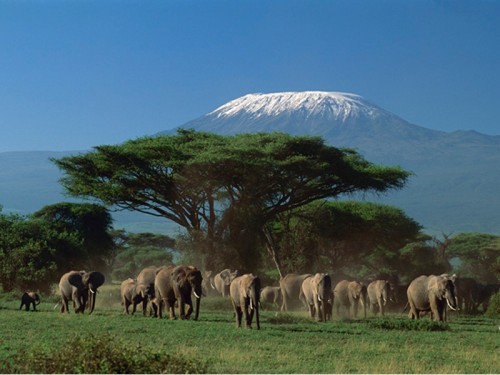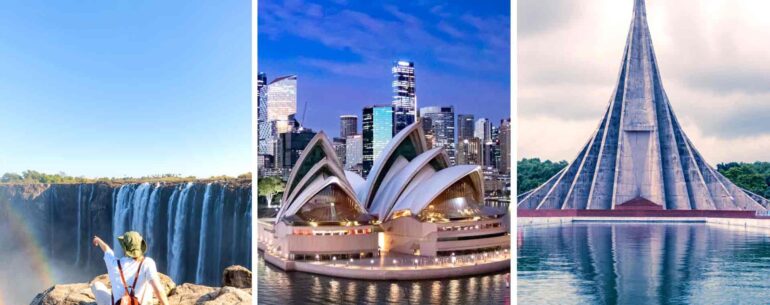Locating at the highest point of Africa at 5,895 metres, the volcanic massif of Kilimanjaro stands separately above the encircling plains, along with the frosty top impending above the savannah. The Kilimanjaro National Park is centred on this mountain, 200 miles away in the southern side of the equator in Moshi (Tanzania). The tourists take flights to Tanzania to observe the wildlife of the park and also to praise the unfettered beauty of the surrounding mountains. Mount Kilimanjaro is included in the list of the largest volcanoes of the world, featuring its three volcanic peaks Shira, Mawenzi and Kibo. Mount Kilimanjaro is truly a distinguished example of the highest-degree natural marvel.
The park was built in 1973 and initially, it possessed the whole mountainous area over the tree-array and the six forest passages that extended down the central montane forest swath. It was included in the list of the UNESCO World Heritage Site in 1987 and now after 2005, the park has completely stretched to the end of the boundaries. This National park now covers an area of about 75,575 hectares and is guarding the high-positioned volcano formation with the height of 4877-5895 metres reaching towards its peak.

The mountain is divided into 5 vegetation zones, savannah bushland (locating at the height of 700-1000 metres from southern side and 1,400-1,600 from the northern side), sub-montane agroforests in the southern region, and alpine bogs, sub-alpine moorland and montane forest. The montane forest strip is blanketing the mountain from 1300-2800 metres. The park is the home of almost 2,500 species of plants with 1,600 lying in the southern region and approximately 900 in the forest swath. Besides, 130 distinctive breeds of trees, 140 breeds of epiphyte, 170 breeds of shrubs, 140 pteridophytes and 100 lianas have also been found here.
The park is very well-known for the rich variety of animal species, with approximately 140 mammals, 25 carnivores, 7 primates, 24 breeds of bats and 25 antelopes. In the strip where trees don’t grow, almost 7 larger mammals’ breeds were found. You will be mesmerized to come across some common animals of the forests like the vulnerable hyrax, eland, grey duiker and buffalos. You can also have the glance of some 220 elephants that are scattered between Tarakia and Namwai rivers, sometimes on the elevated slopes.

Apart from them, other rare species are western black, blue monkey, bushbaby, white colobus, black rhinoceros and leopards. There are approximately 179 highland bird’s breeds but only a few can be seen in the upper zone such as the lammergeier is found on Hunter’s Cisticola, and hill chat.
The best endeavour at Kilimanjaro is to trek around the pinnacle of Kibo( the highest crater which covers 1.5 miles from edge to edge) and to avoid complications within the path; you must take the assistance of a professional guide and should be equipped be climbing accessories. The best time of the year to visit this magnificent National Park is between December and February when the weather is comfortable and skies are cloudless, you can also opt the months between July and September when it is cold and dry.



Leave a Reply
You must be logged in to post a comment.